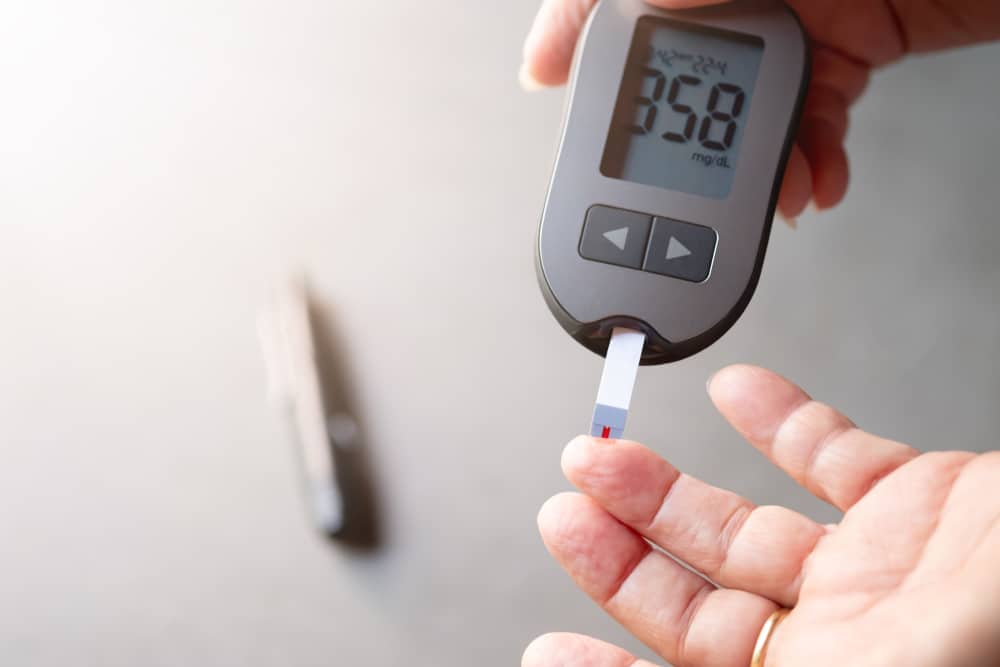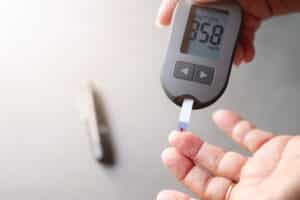COULD OVERLY HIGH BLOOD SUGAR BE CONTRIBUTING TO YOUR SYMPTOMS?

By Dr. Josh Redd, NMD, MS, MAPHB, RedRiver Health and Wellness Center
 People are always looking for the magic supplement or protocol, but honestly, blood sugar imbalances are probably the most common disorder we see – blood sugar spikes cause chaos in the body’s other systems.
People are always looking for the magic supplement or protocol, but honestly, blood sugar imbalances are probably the most common disorder we see – blood sugar spikes cause chaos in the body’s other systems.
Common symptoms of blood sugar imbalances include:
- Mood disorders
- Insomnia and poor sleep
- Fatigue and lethargy
- Anxiety and depression
- PCOS and other hormonal imbalances
- Poor immune resilience
- Irritability
- Poor brain function
The best way to balance your blood sugar is to eliminate sugars (including natural sugars) from your diet, and reduce carbohydrate consumption to a level that keeps your energy on an even keel (the amount will vary depending on the person’s health). This means you fall asleep easily, you sleep throughout the night, and you don’t crash around 3 or 4 pm.
Those 3 am wakeups and 3-4 pm energy crashes are common symptoms of a blood sugar imbalance.
But did you know factors outside of diet can spike blood sugar and cause systemic chaos?
Stress hormones raise blood sugar to send more energy to the brain and body. This is a natural function, but if your life is filled with too much stress, it can contribute to a blood sugar imbalance.
Here are some common stress-related things we see spiking blood sugar and causing issues with energy, sleep, and mood:
- Inflammation
- Caffeine, particularly when you haven’t eaten in a while
- Sleep deprivation
- Skipping breakfast: Some people skip breakfast because they say they’re not hungry or are even slightly nauseous. That’s because stress hormones trigger appetite suppression and nausea. These are the people who should eat a protein-rich breakfast within an hour of waking.
- Undereating
- Insufficient protein (shoot for 1g per lb of ideal body weight)
- Excess lifestyle stress
You can buy a glucose monitor and test strips online to test your blood sugar throughout the day. A healthy blood sugar is between 80–100.
Some people get the “dawn phenomenon,” where stress hormones have spiked their morning blood sugar, so test throughout the day between meals. It should not be over 140 two hours after a meal.
To learn more about our services and to schedule a free consultation, please visit redriverhealthandwellness.com. We work with your prescribing physician for optimal results. Do not discontinue medication or hormone replacement therapy without consulting your prescribing physician.
Related Articles

Prescribing and Expanded Options New to RedRiver Health and Wellness
For years, Red River Health and Wellness has been known for helping complex, chronic, and…
[ READ MORE ]

How to age well — tips for longevity
Have you noticed that some older people are still able to stay active and lucid…
[ READ MORE ]

Too MUCH iron is inflammatory
When we think about iron and health, most people assume any iron disorder is iron-deficient…
[ READ MORE ]
